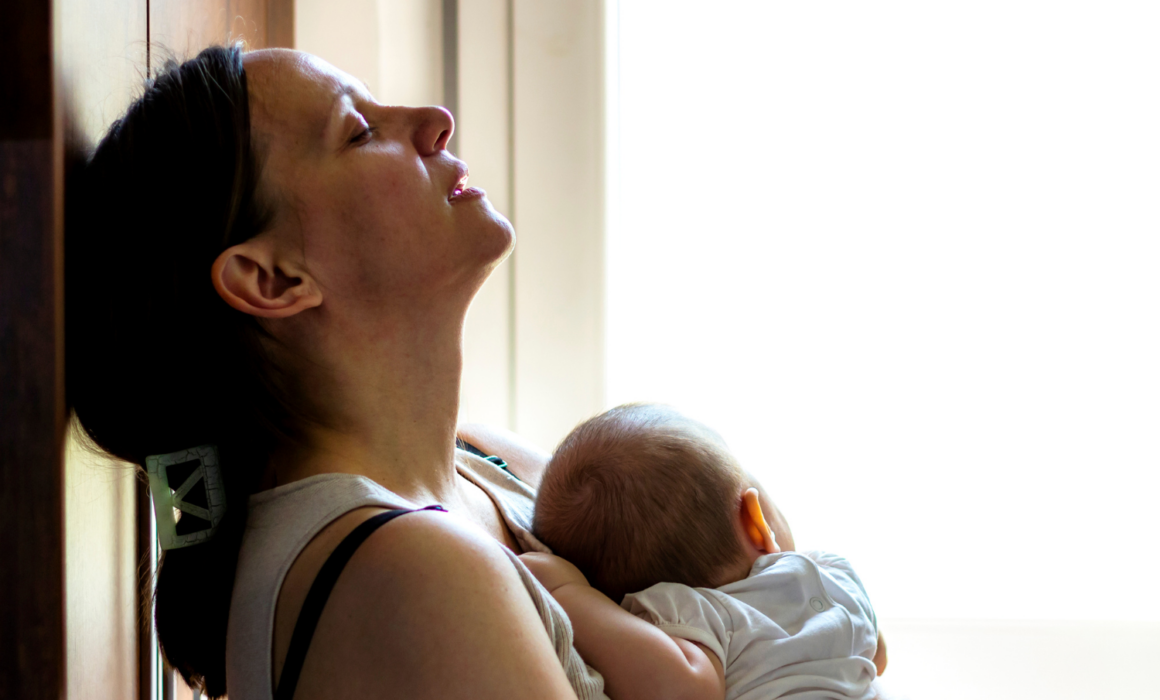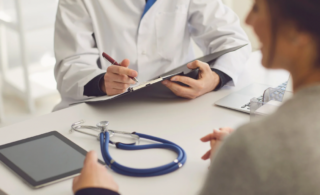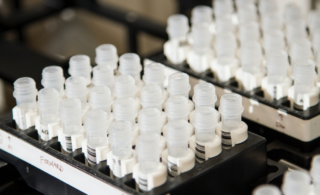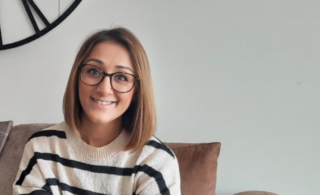
Let's Nail Breast Cancer - Help support our urgent appeal on the 19th - 20th May 2024
Let's Nail Breast Cancer - Help support our urgent appeal on the 19th - 20th May 2024
Let's Nail Breast Cancer - Help support our urgent appeal on the 19th - 20th May 2024
Let's Nail Breast Cancer - Help support our urgent appeal on the 19th - 20th May 2024
Let's Nail Breast Cancer - Help support our urgent appeal on the 19th - 20th May 2024
TRIGGER WARNING: THIS ARTICLE DISCUSSES SECONDARY BREAST CANCER
This article sheds light on the difficulties associated with an abrupt end to breast feeding due to a breast cancer diagnosis.
By Abigail Johnson
GROWING UP
Growing up, all of the families we were close to had lots of children. My own family, with six children (I’m the eldest), was actually one of the smaller ones. I saw how all of the moms/women focused their lives on their children, homeschooling and shaping their own lives around their schedules. Except for my mom. Yes, we were homeschooled and yes, she had a schedule to make that work, but she also held a job as a Physical Therapist. My mom showed me, from the beginning of my life how important it is for a mom to not just have a life revolving around her children, but to also ensure that she had her own pursuits as well.
TRYING FOR A CHILD
Fast forward a few years/decades and, after establishing my career and my husband, his, we decided to start trying for a child. Looking back, our struggle with fertility is such a blip, but at the time, it was all consuming. Every waking and sleeping moment was shadowed by my inability to conceive, no matter what we did. And yes, it was my body that wasn’t cooperating, not my husband’s. After interventions and medication we were able to conceive and I was able to carry our two boys to full term. Both were born healthy, although the births were not ideal, just like their conception. We learned to roll with it, to look forward and not backwards.
One of the things that carried me through the struggle with infertility, which included both the physical struggles and adjustments as well as the emotional struggle to feel whole when a vital part of my biology wasn’t working properly, was that I had a successful career built already. Yes, it wasn’t easy to fit the doctor’s appointments and injections into a busy litigation practice and running my law firm, but I was at a place where I could do that. I’d worked hard to build up the ability to make those adjustments and to flex my work around my life. I could escape to work and engage on an intellectual level and push the struggles to the back. It helped.
Another thing that helped me cope with infertility and how I viewed my body was breastfeeding. I didn’t struggle with breastfeeding. My boys both latched on right away and I was blessed to have sufficient milk to grow some major rolls that just begged to be squished on my boys. We discovered the joy of cuddling and nursing to sleep and co-sleeping and, while sleep wasn’t in plentiful supply, we made it all work. So much so that I was still pumping and breastfeeding on demand in 2017 when my boys were about to be four (4) and (2). We were a triad since both of my boys loved to nurse and it represented a big part of our bond.
I’m glad I captured some pictures of that interlude. In the moment, it felt like each day dragged on for 28+ hours; in highlight, it was also a blip.
BEING DIAGNOSED
It was in early March of 2017 that I was diagnosed with breast cancer and I had to abruptly wean both of my boys with very minimal notice in the middle of attempting to assimilate this concept of having breast cancer. We needed the milk to be out of my breasts so that the MRI could get better pictures than the mammogram of the tumors in my left breast. On a clinical level, it is just that simple.
In actual practice, it was much worse.
First of all, the instructions I was given to dry up my milk were woefully inadequate. Only two steps and I was told that my milk would be dried up in approximately forty-eight (48) hours. Since I’d been nursing and pumping for four (4) years straight, I had a feeling it wouldn’t be that easy. It took me the entire two weeks till the MRI was scheduled to dry up my milk and I sent back a 4 page document to my breast surgeon’s office to share with other women still breastfeeding to help them dry up their milk in the future while avoiding mastitis or other ramifications. That was just the physical part.
Secondly, setting aside the physical symptoms of stopping my milk flow, there were serious emotional ramifications. My three (3) almost four (4) year old son was amenable to weaning. We’d already discussed that he would wean as of his 4th birthday and it wasn’t that far away when I learned of my diagnosis on March 8, 2017. My one (1), almost two (2) year old, was a completely different story. My husband took over bedtime with him since he was used to nursing to sleep and we all had to endure listening to him wailing in the other room for at least a week because he didn’t want to go to sleep without nursing. Even after that week, he still struggled at bed time and so did I. I can’t adequately explain how awful it was to listen to my son wailing for something I could give him and yet I had to deprive him. It took every ounce of will I had to remain away from him and not rip off the tight binding that was helping my breasts learn not to produce milk and nurse him to sleep. Every ounce.
Third, I had to learn how to parent without breastfeeding. I’d learned in the four (4) years I’d been a mom that nothing calmed my boys like nursing. Literally everything could be made better by helping them to latch on and snuggle for a bit. Not being able to use that method of connection required a lot of reassessment and adjustments. Again, it feels like a blip looking back, but in the moment, it felt insurmountable in the midst of learning the new language of breast cancer.
IT WAS STAGE IV CANCER
After we got past the hurdle of weaning and adjusting to an early stage breast cancer diagnosis, we found out in June of 2020 that I’d actually been Stage IV from the beginning. The limp I hadn’t complained about because there was just too many things on my mind turned out to be caused by a 5cm tumor in the middle of my right femur. I was rushed into surgery to put titanium rods inside my femurs during chemo and I had to turn over more of my responsibilities around the house to others.
In hindsight, while the delayed diagnosis was frustrating and it caused so much upheaval as I adjusted twice, I am thankful that it gave me the time to wean my boys and begin adjusting to a different kind of parenting before I was immersed in more surgeries and adjusting to a terminal diagnosis. My first thought at the time of diagnosis at Stage II and the information that I’d been Stage IV from the beginning was that I wanted to spend more time with my boys. That career I’d built, I had to give that up, but the fact that I’d spent so much time building it up meant that we had the assets and the insurance to ensure that I don’t have to work and I can spend the time I have with my boys.
LOOKING BACK AND LOOKING FORWARD
Looking back, we see everything more clearly. Looking back, I can see that the those blips that were so consuming at the time, that seem less consequential looking back, those blips were real life with my kiddos. They may not remember all of the details of how we connected and how we built our relationship, but I know they feel it. When we talk about how they are doing and what they are thinking about, I can see the benefits of building that foundation with them. And we keep on looking forward and adjusting to all the new hurdles that living with MBC (a/k/a secondary breast cancer) brings.
You can read more on Abigail’s blog, no half measures.
To return to the homepage of our Information Hub, click here where you can access more helpful information, practical advice, personal stories and more.
Future Dreams hold a range of support groups, classes, workshops and events to help you and your carers during your breast cancer diagnosis. These are held both online and in person at the London-based Future Dreams House. To see what’s on offer and to book your place, see here.
November 2020 (Reviewed February 2024)
This article was written by a guest author based on their own experience of breast cancer and its treatment. It is important to note that this is one person’s experience and that whilst there may be commonalities between the experiences of different people, everyone has a different diagnosis/treatment plan/general experience. The information and content provided in all guest articles is intended for information and educational purposes only and is not intended to substitute for professional medical advice. It is important that all personalised care decisions should be made by your medical team. Please contact your medical team for advice on anything covered in this article and/or in relation to your personal situation. Please note that unless otherwise stated, Future Dreams has no affiliation to the guest author of this article and he/she/they have not been paid to write this article. There may be alternative options/products/information available which we encourage you to research when making decisions about treatment and support.
Share

Support awareness research
Donate to those touched by BREAST cancer
Sylvie and Danielle began Future Dreams with just £100 in 2008. They believed nobody should face breast cancer alone. Their legacy lives on in Future Dreams House. We couldn’t continue to fund support services for those touched by breast cancer, raise awareness of breast cancer and promote early diagnosis and advance research into secondary breast cancer without your help. Please consider partnering with us or making a donation.



